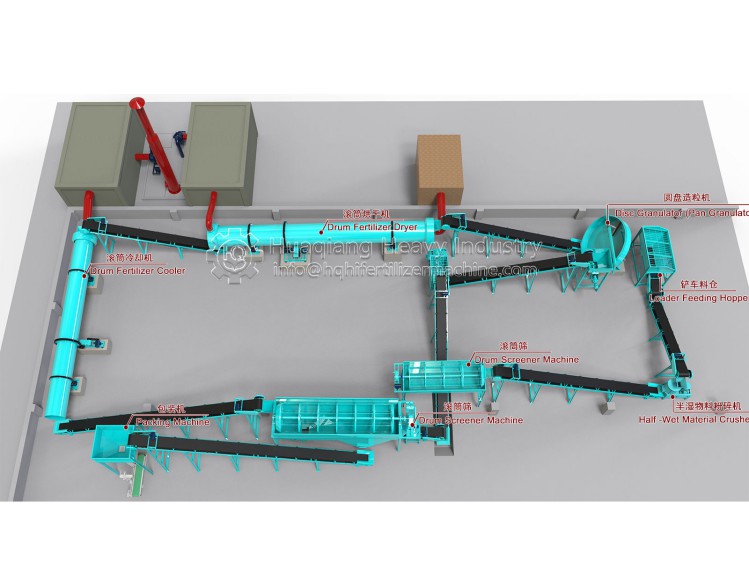Considerations of organic fertilizer manufacturing process:
1. Determine the output of the organic fertilizer production line. For example, the number of tons produced per year, or the number of tons produced per hour, can determine the specifications of organic fertilizer production equipment.
2. Determine the shape of the particles. It is to choose what kind of granulator: powder, column, flat ball or standard garden. Commonly used granulation organic fertilizer equipment are: disc granulator, drum granulator, wet granulator, counter-roller extrusion granulator, flat die granulator, and ring film granulator. The selection of fertilizer granulator machine should be determined according to the preferences of the local fertilizer sales market. The particle shape is different, the production process of organic fertilizer is also different, and the price of organic fertilizer equipment is also different.
3. Determine the configuration level of the organic fertilizer equipment. The level of equipment configuration determines the price of the equipment, the amount of labor is different, and the ability of the equipment to operate stably is also different. Generally, those with high configuration should add some links, such as automatic batching device, automatic packaging device, automatic quantitative feeding device, cyclone dust removal and water dust removal.
4. Determine the type of fertilizer produced. It is a compound fertilizer equipment or an organic fertilizer equipment. For the same output, the organic fertilizer equipment generally takes into account the high moisture content and the strains are not resistant to high temperature. The model is generally larger than the compound fertilizer model. There are 4 types of general organic fertilizers, pure organic fertilizers, organic-inorganic compound fertilizers, biological organic fertilizers, and compound microbial fertilizers. Different types of organic fertilizers have different equipment.
5. Selection of fermentation turning and throwing machine: The general fermentation forms are: strip-stack fermentation, shallow-cao fermentation, deep-tank fermentation, tower fermentation and rotary drum fermentation. . Generally, it is more suitable to use shallow slot stacker. The advantages of the shallow tank stacker: it is more in line with the principle of aerobic fermentation, it is not easy to form anaerobic, the fermentation is full and complete, and the fermentation speed is fast.
6. Determining the level of environmental protection requirements: Where environmental protection requirements are low, heavy dedusting is generally sufficient, and investment in organic fertilizer equipment is low; where environmental protection requirements are high, heavy dedusting and water and ink dedusting are generally selected to meet national air emission quality standards.